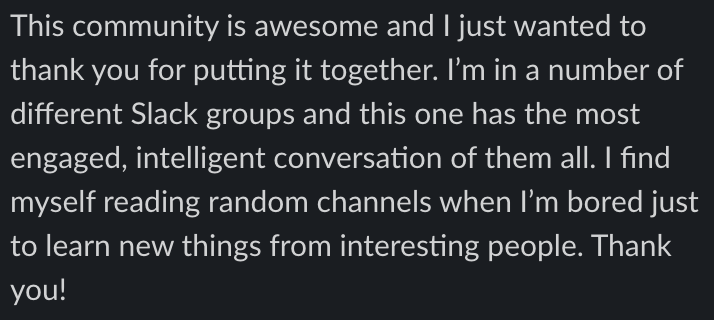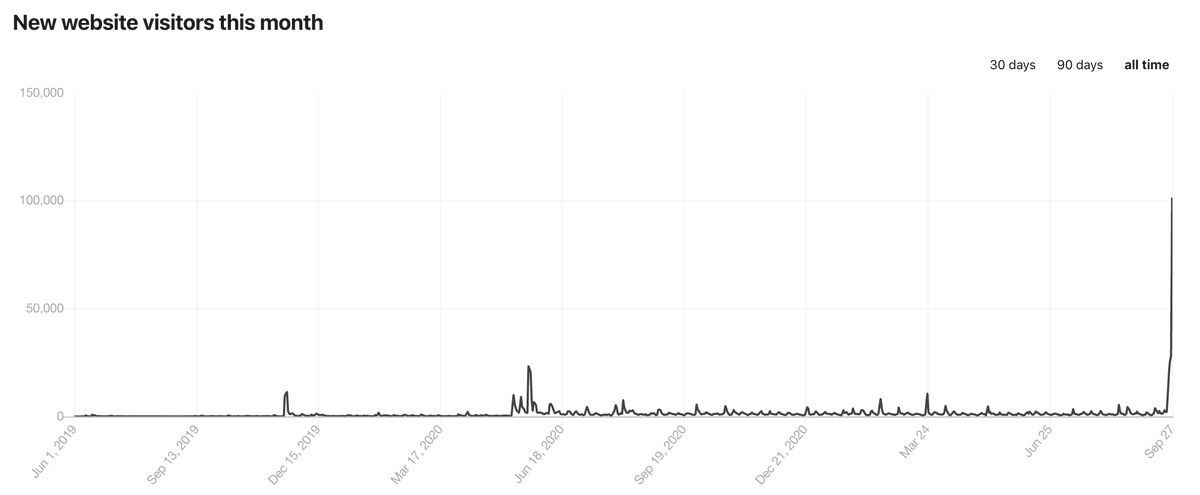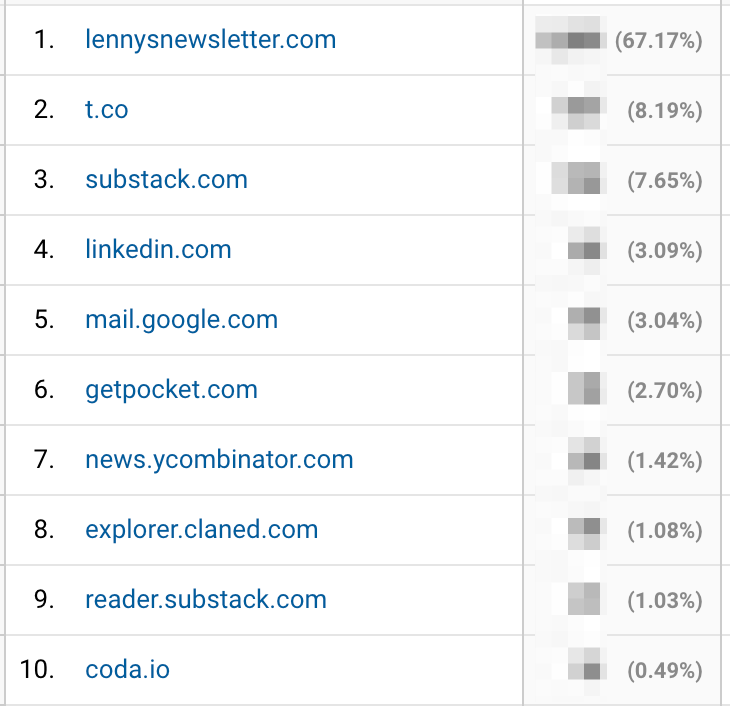
I've been told I undersell the Slack community that you get access to as a paid newsletter subscriber, so here's the sell: For $150/year, get access to a thriving community of 5,000+ PMs, founders, growth leaders, and all manner of product builders. More in thread 🧵 

The community that's formed around the newsletter is probably the thing I'm most proud of in all of the time I've been working on the newsletter. It's mind-boggling how much value is created when you bring smart, driven, generous people together. 

In addition to the Slack itself, you also get:
✅ Fireside chats with folks like @andrewchen @cagan @bbalfour @ttorres @shl
✅ Community AMAs led by @ttrauser
✅ A weekly digest of the best conversations curated by @KiyaniBba
✅ Community events and support by @shremanshrestha
✅ Fireside chats with folks like @andrewchen @cagan @bbalfour @ttorres @shl
✅ Community AMAs led by @ttrauser
✅ A weekly digest of the best conversations curated by @KiyaniBba
✅ Community events and support by @shremanshrestha

Some community stats:
✅ 500 daily active users (1,300 weekly)
✅ An average of 250 messages per day, and four replies per thread
✅ Most popular channels: talk-product, tools-and-pro-tips, talk-management, talk-startups, talk-growth, and great-reads-and-listens
✅ 500 daily active users (1,300 weekly)
✅ An average of 250 messages per day, and four replies per thread
✅ Most popular channels: talk-product, tools-and-pro-tips, talk-management, talk-startups, talk-growth, and great-reads-and-listens

To join, simply subscribe to the newsletter and look for a link in the welcome email. In addition to the community, you also get a weekly newsletter written by yours truly 👀
lennysnewsletter.com/subscribe
lennysnewsletter.com/subscribe
• • •
Missing some Tweet in this thread? You can try to
force a refresh












